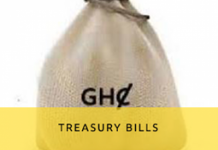The Chamber of Petroleum Consumers (COPEC) is advocating for a transparent, evidence-based, and scientific framework to guide the adjustment of public transport fares in Ghana, replacing what it describes as the outdated method of relying solely on negotiations between driver unions and government officials.

The call comes in the wake of the Ghana Road Transport Coordinating Council’s (GRTCC) proposal for a 20% fare increase. The GRTCC had argued that the increase was necessary due to rising costs of goods, services, and spare parts—costs which did not decrease even after a 15% fare reduction in May this year.
The fare hike, which was scheduled to take effect on August 8, 2025, has since been suspended by the driver unions. As a result, COPEC has temporarily halted its plans to challenge the proposed increase in court.
Speaking in an interview with Citi Business News, COPEC Executive Secretary, Duncan Amoah, emphasised the need for a modernised, data-backed system.
“Public transport fare should be scientifically driven, not based on whims and wishes. For example, in the petroleum sector, we can calculate the cost per litre per kilometre in the country using established metrics. Once calculated, these figures can be published for transparency and public trust,” he explained.
According to COPEC, a scientific framework for fare adjustments would use clearly defined parameters such as:
Fuel price fluctuations over time
Average vehicle maintenance costs and spare parts inflation
Depreciation rates of transport vehicles
Cost of insurance and licensing
Inflation rates affecting driver income and operational expenses.
The Chamber believes that implementing such a system will create fairness for both passengers and transport operators, while reducing the frequent disputes and protests that occur whenever fares are adjusted.
COPEC has also hinted that this data-driven approach could be integrated into a national transport policy, ensuring that all stakeholders—from government to transport operators and commuters—understand how fare changes are determined.
With transport costs being a major driver of inflation in Ghana, analysts suggest that a predictable and transparent fare adjustment model could contribute to greater economic stability and reduce public dissatisfaction over fare hikes.
























































![[FREE FREE MONEY] Predict and Win a Guaranteed GH¢200 From Us EVERY WEEK](https://wordpress.ghanatalksradio.com/wp-content/uploads/2022/02/Predict-and-Win-Final-09-03-2021-218x150.jpg)
![[Predict & Win – 8th/Oct.] WIN A Guaranteed ¢200 From Us This Week](https://wordpress.ghanatalksradio.com/wp-content/uploads/2021/10/maxresdefault-16-218x150.jpg)
![[Predict & Win – 2nd] WIN A Guaranteed ¢200 From Us This Week](https://wordpress.ghanatalksradio.com/wp-content/uploads/2021/09/maxresdefault-50-218x150.jpg)
![[Predict & Win – 25th] WIN A Guaranteed ¢200 From Us This Week](https://wordpress.ghanatalksradio.com/wp-content/uploads/2021/09/maxresdefault-36-218x150.jpg)
![[Predict & Win – 18th] WIN A Guaranteed ¢200 From Us This Week](https://wordpress.ghanatalksradio.com/wp-content/uploads/2021/09/maxresdefault-23-218x150.jpg)







![[National cathedral] See full list of churches that have contributed since 2018](https://wordpress.ghanatalksradio.com/wp-content/uploads/2020/09/Ghana-National-Cathedral-GhanaTalksRadio-100x70.jpg)
![[Watch Live] Finance Minister, Dr. Cassiel to presents 2025 budget t parliament](https://wordpress.ghanatalksradio.com/wp-content/uploads/2025/01/Ato-Forson-minister-750x375-1.jpg)
![[Photos] Residents of Nkwanta-Kpassa fix poor roads](https://wordpress.ghanatalksradio.com/wp-content/uploads/2023/10/Nkwanta-Kpassa-100x70.jpg)
![[Ghana @66] No dumsor, no fuel scarcity, no food shortages; Ghanaians must count their blessings – Akufo-Addo](https://wordpress.ghanatalksradio.com/wp-content/uploads/2021/12/President-Nana-Addo-Dankwa-Akufo-Addo-100x70.jpg)
